| |

|
DeLoG NEWSLETTER
No. 58 – 01/2022
|
|
| |
|
|
| |
Dear Reader,
welcome to issue No. 58 of the DeLoG Newsletter which showcases the Network’s most recent activities and offers an overview of current news as well as upcoming events and courses.
Can’t get enough? Then feel invited to visit our DeLoG Website. Our 'Knowledge' and 'Event' sections provide you with access to even more new publications as well as current courses offered by our members and partners.
We hope you enjoy this issue and encourage you to forward our Newsletter to others interested in staying updated on Decentralisation and Local Governance.
All the best and stay healthy!
Your DeLoG Team
Contact: [email protected]
|
|
|
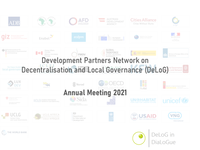
© DeLoG
|
|
Looking Back - DeLoG Activities in 2021
We wish you a happy new year and a good start into 2022! We want to kick-off this newsletter with a look back at the most important DeLoG activities since our Annual Meeting (AM) in 2020. You will find events, courses, learning materials and exchanges we conducted in this period. The DeLoG Annual Meeting 2021 was one of the last year's highlights and focused on inclusive and resilient Decentralisation and Local Governance (DLG) reforms. During the five online sessions, members and partners presented their approaches to address challenges and leverage opportunities for more inclusiveness and resilience. You can find more information and the detailed report here.
|
| |
|
|
| |
|
|
|
|
|
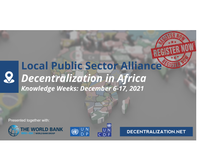
© The Local Public Sector Alliance
|
|
Report and Recording of the Webinar ''Is Decentralisation a Road to Peace in Africa?'' - Now Available
As part of the global webinar series on decentralisation and local development around the world, the Local Public Sector Alliance jointly conducted a webinar on "Decentralisation and Localisation in Sub-Saharan Africa: Is Decentralisation a Road to Peace in Africa?" together with UNDP and DeLoG. This webinar introduced the audience to different contexts of decentralisation efforts in Sub-Sahara Africa by bringing together the expertise of scholars working in the field. The speakers presented the theoretical links between decentralisation and the promotion of peace and highlighted local drivers and mechanisms leading to the varying success of decentralisation efforts. The countries in focus were Somalia, South Sudan, the Central African Republic, and Mozambique.
|
| |
|
|
| |
|
|
|
|
|
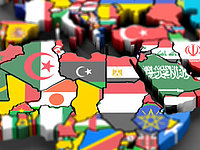
© The Local Public Sector Alliance
|
|
Save-the-Date: Decentralisation and Local Development in the Middle East & North Africa (MENA)
The Local Public Sector Alliance hosts a "Decentralisation and Local Development in the Middle East & North Africa (MENA) - Knowledge Sharing Week" from 07 March to 11 March 2022. The webinars are part of the global webinar series on decentralisation and local development around the world. The Knowledge Sharing Week is co-organised in close cooperation between the World Bank Subnational Governance and Decentralization Global Solutions Group, UNDP, UNCDF, and DeLoG. Pre-registration is open.
|
| |
|
|
| |
|
|
|
|
|
News from our Members and Partners
|
|
|
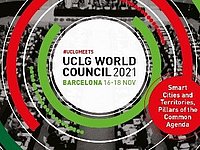
© UCLG
|
|
UCLG World Council Report 2021
The UCLG World Council 2021 took place under the theme of ''Smart Cities and Territories, Pillars of the Common Agenda''. The World Council is the principal policy-making body of the UCLG World Organisation, which meets once a year to decide on new policies and review implementation. Policy debates from the World Council evolved around the issue of how the municipal movement can contribute to the United Nations Secretary General’s Common Agenda. They also addressed the ways in which the world needs to transform in the coming years, with an emphasis on the future of human rights on the local level.
|
| |
|
|
| |
|
|
|
|
|
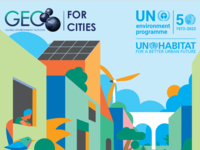
© UN-Habitat, Joseph Shmidt-Klingenberg and Sebastian Obermeyer
|
|
The Sixth Global Environment Outlook for Cities Report
The sixth Global Environment Outlook (GEO-6) for Cities report presents urbanisation as one of the five main drivers of environmental change. It investigates the impact of the loss of biodiversity and climate change on cities and their residents. This report thematises the social equity-environmental sustainability-nexus in cities, demonstrating examples from real life and providing city-level decision-makers with practical advice on how to achieve inclusive, safe, resilient and environmentally sustainable cities for all. Approaches such as inclusive, publicly engaged decision-making; partnerships and coalition-based governance; and institutionalisation for longevity and scaling up are presented as important tools for urban planning and city management.
|
| |
|
|
| |
|
|
|
|
|
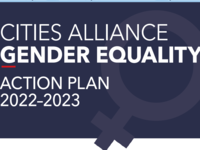
© Cities Alliance, UNOPS
|
|
Cities Alliance Gender Equality Action Plan 2022-2023
The Cities Alliance’s recently published Gender Equality Action Plan (GAP) 2022–2023 displays how the organisation will ensure gender equality and women’s empowerment as part of all its programmes and processes. It provides a far-reaching roadmap for the future work of the Cities for Women Global Programme (CFWP) and sets ambitious goals for capacity-building of local governments, women's organisations and community-based initiatives to effectively engage women in urban planning.
|
| |
|
|
| |
|
|
|
|
|
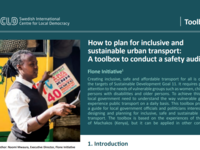
© ICLD
|
|
ICLD Inclusive Urban Toolbox
The Swedish International Centre for Local Democracy (ICLD) provides a toolbox for local governments and politicians to conduct a safety audit for inclusive and sustainable urban transport. The toolbox includes best-practices on designing and planning public transport, based on the experiences of the city of Machakos (Kenya). The focus of this toolbox thereby lies on the needs of vulnerable groups such as women, children, persons with disabilities and older persons. To achieve the goal of inclusive, safe, and affordable transport, local governments need to understand the way vulnerable groups experience public transport daily.
|
| |
|
|
| |
|
|
|
|
|
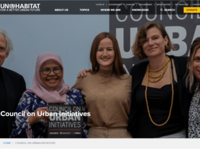
© UN-Habitat
|
|
Launch of the Council on Urban Initiatives
The Council on Urban Initiatives is a collaboration between UN-Habitat, UCL Institute for Innovation and Public Purpose and LSE Cities. It addresses the just, healthy, and green city. The council provides a platform to showcase local initiatives to replicate and scale them, but it also identifies barriers to innovation and progressive policymaking that hold cities back. In this way, the council promotes experimental initiatives related to the urban SDGs. This will enable cities to better respond to the global challenges of the 2020s and beyond.
|
| |
|
|
| |
|
|
|
|
|
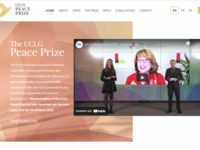
© UCLG Peace Prize
|
|
UCLG Peace Prize 2022
The applications for the 2022 edition of the UCLG Peace Prize are now open! Hosted live from The Hague, city of peace and justice, the launch event featured inspiring speakers discussing the potential of local governments in promoting peace. The event marked the opening call for applications and provided all information local governments need to apply for this award. Local governments that have innovative and effective initiatives to promote peace in their communities are eligible to apply. The finalists will be sponsored to present their peace initiatives at the UCLG World Congress in the Korean city of Daejeon in October 2022. The deadline for applications will be 01 March 2022.
|
| |
|
|
| |
|
|
|
|
|

© European Commission
|
|
New Self-Assessment Tool for Sustainable Urban Development Strategies
The European Commission designed a self-assessment tool for sustainable urban development strategies (SAT4SUD). It provides local authorities as well as national and regional managing authorities, that are updating or creating an urban development strategy, with information on the extent of the strategy’s integrated and participatory approach. Additionally, the authorities get information on the strategy's completeness and quality.
|
| |
|
|
| |
|
|
|
|
|
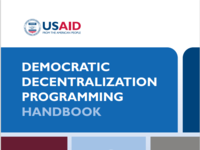
© USAID
|
|
USAID Democratic Decentralization Programming Handbook
The Democratic Decentralization Programming Handbook is a publication of USAID’s “Center for Democracy, Human Rights and Governance”. This updated edition provides novel insights into democratic decentralisation. It understands decentralisation as a reform that advances democracy and development in a context of stability and the rule of law. The handbook presents detailed information on different case examples, guidance about how to assess the national, subnational, and civil society environment, as well as specific programming strategies.
|
| |
|
|
| |
|
|
|
|
|
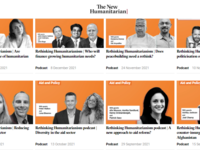
© The New Humanitarian
|
|
Rethinking Humanitarianism - What Can We Learn from Local Peacebuilding Efforts?
80 percent of humanitarian needs worldwide are driven by conflict. The podcast "Rethinking Humanitarianism" explores changes and challenges in humanitarian aid. In the episode "Does peacebuilding need a rethink?", Danjuma Dawop, local peacebuilder for Mercy Corps in Nigeria, and Obi Anyadike, senior Africa editor at The New Humanitarian, address the impact of hyper-local peace deals as an alternative to "Big Peace". They discuss what we can learn from local peacebuilding efforts and the challenges these efforts face. Tune in!
|
| |
|
|
| |
|
|
|
|
|
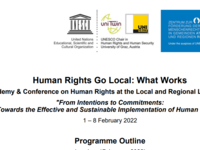
© UNESCO
|
|
Human Rights Go Local – What Works (UNESCO)
When: 1 February 2022 – 8 February 2022
Where: Online
Apply by: Registration for closing conference now open
Due to the closeness of cities and municipalities to their citizens, it is essential to implement human rights at the local level to ensure that no one is left behind. To address concrete ways for local governments and stakeholders to strengthen their commitment to human rights, the Academy and Conference will draw together efforts from across the world. This year's annual Academy and Conference aim to contribute to the United Nations’ vision of protecting and promoting human rights for all.
|
| |
|
|
| |
|
|
|
|
|
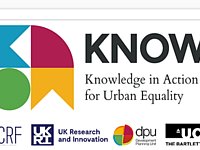
© Knowledge in Action for Urban Equality (KNOW)
|
|
Conference: The Future of Urban Equality - Knowledge, Partnerships and Pathways in Action (KNOW)
When: 7 February 2022 - 10 February 2022
Where: Online
Apply by: Registration open
The aims of the Knowledge in Action for Urban Equality (KNOW) programme are: to share key findings that contribute to shaping action pathways to urban equality at local, national and international scales; to address theories and practices related to the cross-cutting challenges of resilience, prosperity and extreme poverty, and their relationship to urban equality; to promote the co-production of knowledge and the related "ethics of practice" in applied research and capacity building across local and global agendas and collectively planned initiatives that seek to address urban equality. Key findings will be presented in eight webinars.
|
| |
|
|
| |
|
|
|
|
|
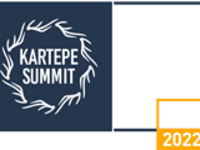
© Kartepe Summit
|
|
Kartepe Summit and Urban Fair
When: 24 March 2022 - 27 March 2022
Where: Kocaeli, Turkey
Apply by: Call for papers has closed
The main theme of the 2022 Kartepe Summit and Urban Fair is "Resilient Cities and the Transformation of the City". Taking the necessity of producing solutions to natural disasters, epidemics, earthquakes, water crises and climate change together with the need to disseminate good practices, the Summit addresses how to build resilient cities against these crises. Kartepe Summit and Urban Fair 2022 aims to contribute to the implementation of the 2030 Sustainable Development Goals (SDGs) in cities in Turkey and abroad.
|
| |
|
|
| |
|
|
|
|
|
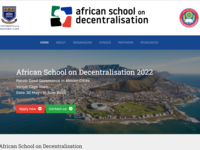
© African School on Decentralisation
|
|
African School on Decentralisation 2022
When: 30 May 2022 - 10 June 2022
Where: Cape Town, South Africa
Apply by: 31 January 2022
The African School of Governance is a post-graduate knowledge-sharing course highlighting various aspects of decentralisation in Africa. The course aims at government officials, post graduate students, members of local and international non-governmental organisations, practitioners as well as other participants with an interest in decentralisation in Africa. This year's course will focus on Good Governance in African cities by addressing spatial equity and urban informality, sustainable cities (climate change responses), cities and public finances, and central and local governmental relations. The course is hosted in partnership with the Institute of Federalism Fribourg and the Institute for Comparative Federalism. Among the sponsors is the Commonwealth Local Government Forum (CLGF).
|
| |
|
|
| |
|
|
|
|
|

© UN-Habitat
|
|
WORLD URBAN FORUM 11
When: 26 June 2022 - 30 June 2022
Where: Katowice, Poland
Apply by: 22 June 2022
The World Urban Forum is the premier global conference on sustainable urbanisation. It aims to address rapid urbanisation and its impact on cities, communities and policies. This year's conference will be co-organised by Poland's Ministry of Development Funds and Regional Policy and the Municipal Office of Katowice.
|
| |
|
|
| |
|
|
|
|
|
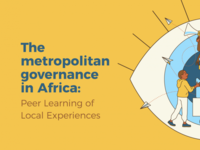
© metropolis, UCLG Africa
|
|
The metropolitan governance in Africa. Peer Learning of Local Experiences
When: 17 February 2022
Where: Online
Apply by: Registration open
|
| |
|
|
| |
|
|
|
|
|
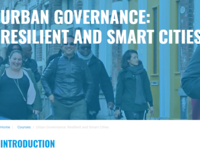
© The Hague Academy
|
|
The Hague Academy, Urban Governance: Resilient & Smart Cities course
When: 02 May 2022 - 13 May 2022
Where: The Hague
Apply by: Registration open
|
| |
|
|
| |
|
|
|
|
|
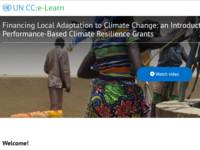
© UNCDF LoCAL
|
|
Financing Local Adaptation to Climate Change: an Introduction to Performance-Based Climate Resilience Grants
When: Self-Paced
Where: Online
Apply by: Registration open
|
| |
|
|
| |
|
|
|
|
|
Knowledge
|
|
|
Fragility ● Post-conflict Settings ● Migration
|
|
|
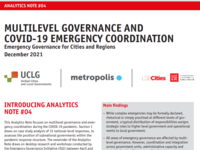
© Emergency Governance Initiative
|
|
Multilevel Governance and Covid-19 Emergency Coordination – Emergency Governance for Cities and Regions
This Analytics Note is the fourth part of a series by the Emergency Governance Initiative (EGI), a joint project by Metropolis, United Cities and Local Governments (UCLG), and LSE Cities. The publication combines the results of case study analysis, desktop research and workshops on multilevel governance and emergency coordination during the COVID-19 pandemic. In complex emergencies, pre-existing patterns of decentralisation determine the subnational governments' ability to influence emergency response strategies. There is evidence that sectors, such as health and economic development tend to become more centralised. Others, such as security and environment, tend to maintain a decentralised approach.
Author: UCLG, Metropolis, LSE cities
Publisher: UCLG, Metropolis, LSE cities
Publication date: 2021
Copywrite: UCLG, Metropolis, LSE cities
|
| |
|
|
| |
|
|
|
|
|
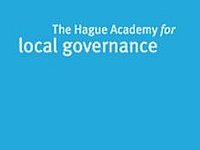
© The Hague Academy for Local Governance
|
|
Promoting Peace and Inclusive Governance in the Philippines
Staff members of Mindanao State University (MSU) are involved in implementing training for the self-governing political entity Bangsamoro Autonomous Region in Muslim Mindanao and its Local Government Units. The Hague Academy for Local Governance set up a training of trainers programme to strengthen the capacities on inclusive governance and sustainable peace of the eighteen participating professors and staff members. The aim is to create a better understanding of how local governance can foster sustainable peace. In its second round of training, the focus is on Gender and Inclusivity. In this article, two participants give insights into the transformative power of inclusive policies.
Author: The Hague Academy for Local Governance
Publisher: The Hague Academy for Local Governance
Publication Date: 2021
Copyright: The Hague Academy for Local Governance
|
| |
|
|
| |
|
|
|
|
|
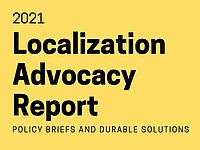
© Watan Foundation
|
|
Localization Advocacy Report: Policy Briefs and Durable Solutions
This policy brief is the output report of a workshop that brought together 147 organisations in Turkey. It highlights different aspects of social cohesion, economic empowerment, voluntary return and resettlement of refugees and migrants in Turkey and presents policy recommendations. Further, the document underlines how localisation promises more sustainable, cost-effective, and cultural-sensitive implementation of humanitarian responses. The policy brief has been compiled from the results of a workshop funded by the Danish International Development Agency (DANIDA) as part of the “Support to Local Civil Society to Strengthen Inclusive Durable Solutions for Displacement Affected Populations in Turkey” project.
Author: WATAN Foundation
Publisher: WATAN Foundation
Publication Date: 2021
Copyright: WATAN Foundation
|
| |
|
|
| |
|
|
|
|
|
Fiscal Decentralisation ● Local Finance
|
|
|
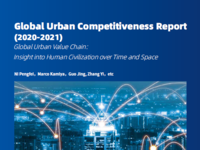
© National Academy of Economic Strategy, CASS | UN-Habitat
|
|
Report on Sustainable Competitiveness of Cities Worldwide (2020-2021)
The fifth annual report from the cooperative research project by the Chinese Academy of Social Sciences (CASS) and UN-Habitat focuses on sustainable urban competitiveness, urban land and urban finance. It aims to promote the implementation of the United Nations’ 2030 Agenda through the assessment of urban competitiveness. This edition of the Global Urban Competitiveness Report (GUCR) provides an indicator system for the economic and sustainable competitiveness of more than 1000 cities.
Authors: Ni Pengfei, Marco Kamiya, Guo Jing, Zhang Yi et al.
Publisher: National Academy of Economic Strategy, CASS, UN-Habitat
Publication Date: 2021
Copyright: National Academy of Economic Strategy, CASS, UN-Habitat
|
| |
|
|
| |
|
|
|
|
|
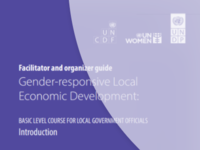
© UNDP
|
|
Facilitator and Organizer Guide: Gender-Responsive Local Economic Development: Basic Level Course for Local Government Officials
The facilitator and organiser guide "Gender-responsive local economic development planning and implementation" was developed as part of the Inclusive and Equitable Local Economic Development Program (IELD). It aims to increase the capacity of local and regional governments for gender-equitable local economic development policies, interventions, and public and private sector investments. The basic level course, co-implemented by UNCDF, UNDP and UN Women, focuses on public and private local investments as well as local economic planning and implementation.
Authors: UNCDF, UNDP and UN Women
Publisher: UNDP
Publication Date: 2021
Copyright: UNDP
|
| |
|
|
| |
|
|
|
|
|
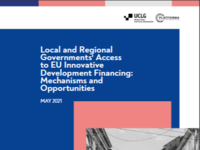
© UCLG
|
|
UCLG Local and Regional Governments' Access to EU Innovative Development Financing
United Cities and Local Governments (UCLG) and PLATFORMA, the pan-European coalition of local and regional governments, map the innovative EU financial mechanisms available to support the development and decentralised cooperation activities of local and regional governments (LRGs). They identify current and future opportunities, constraints, and modalities of access for LRGs. The emphasis of this joint study is on the Global South and on the EU Southern Neighbourhood. Lastly, it gives recommendations on how to best access and engage in development programming processes in the context of the EU Multiannual Financial Framework for 2021-2027.
Authors: Jamie Simpson, Euan Crispin, Triple Line Consulting Ltd
Publisher: UCLG
Publication Date: 2021
Copyright: UCLG
|
| |
|
|
| |
|
|
|
|
|
2030 Agenda ● Localising the SDGs
|
|
|
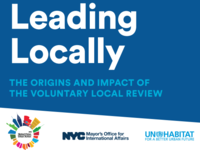
© City of New York, UN-Habitat
|
|
Leading Locally: The Origins and Impact of the Voluntary Local Review
Voluntary Local Reviews are a tool to measure and report to the United Nations on the progress in achieving the SDGs. New York City was the first in the world to implement this process in 2018. In 2019, the city launched the Declaration on the Voluntary Local Review. Since then, over 333 subnational governments have signed onto the Declaration’s three commitments. This report looks at the beginning of the movement and underlines the importance of localising planning, programming, and monitoring of the SDGs to achieve a sustainable future.
Editors: Aissata M.B. Camara, Tanyanika Davis, Oneika Pryce, Christopher Williams, Eduardo Moreno, Naomi Parek
Publisher: NYC Mayor’s Office for International Affairs, UN-Habitat
Publication Date: 2021
Copyright: UCLG
|
| |
|
|
| |
|
|
|
|
|

© Elsevier Ltd.
|
|
Lessons Learnt from Previous Local Sustainability Efforts to Inform Local Action for the Sustainable Development Goals
This paper aims to inform local action for the SDGs by combining lessons learnt from the application of a previous major local sustainability agenda, the Local Agenda 21 (LA21). It identifies enablers and constraints to the key elements of LA21. The availability of reliable resources, supportive planning and policymaking practice, competent local actors, and trust between local actors were found to be the most frequent enablers of local sustainability processes in the context of LA21. Finally, the authors discuss the implications of the findings for SDGs implementation at the local level.
Authors: Dianty Ningrum, Shirin Malekpour, Rob Raven, Enayat A. Moallemi
Publisher: Elsevier Ltd.
Publication Date: 2022
Copyright: Elsevier Ltd.
|
| |
|
|
| |
|
|
|
|
|
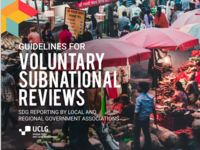
© UCLG
|
|
Guidelines for Voluntary Subnational Reviews
This publication underlines the importance of the Voluntary Subnational Reviews (VSR) for the efforts to build a more sustainable future and achieve the SDGs. The reports are an essential instrument for raising awareness of the 2030 Agenda. The VSR offer great potential for contributing to improvements in local and regional governments' performance towards achieving the SDGs, through strengthening multilevel governance and informing local and regional SDG policy. The guidelines highlight which elements will be important for subnational governments to quickly recover from the pandemic, also giving guidance for a way forward.
Author: Eline Vermeer
Publisher: UCLG
Publication Date: 2021
Copyright: UCLG
|
| |
|
|
| |
|
|
|
|
|
Urban and Territorial Governance
|
|
|
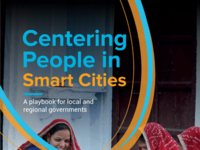
© UN-Habitat
|
|
People-Centered Smart Cities Playbook
This Playbook focuses on the people-centred smart cities framework and it aligns with the New Urban Agenda' shared vision #11 of ''cities for all''. It aims to make policies and programmes more inclusive and responsive to the needs of cities’ inhabitants. In so doing, it provides tools, knowledge and resources for local governments that support putting people at the centre of digital transformation.
Author: Emily Royall
Publisher: UN-Habitat
Publication Date: 2021
Copyright: UN-Habitat
|
| |
|
|
| |
|
|
|
|
|

© One Earth, Elsevier Inc.
|
|
Leaving No Urban Citizens Behind: An Urban Equality Framework for Deploying the SDGs
The COVID-19 pandemic has heightened the systematic and intersectional inequalities that urban dwellers experience globally. The authors of the article point out that the SDG localisation may not achieve the aim to "leave no one behind", due to enduring contradictions across the goals, siloed approaches, or the complexities of implementation. They also provide a framework for mobilising "urban equality" through the 2030 Agenda as well as pointing out four key areas for accelerating an urban equality agenda.
Authors: Stephanie Butcher, Michele Acuto, Alexei Trundle
Publisher: One Earth, Elsevier Inc.
Publication Date: 2021
Copyright: Elsevier Inc.
|
| |
|
|
| |
|
|
|
|
|
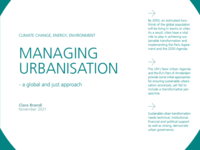
© Friedrich-Ebert-Stiftung e.V.
|
|
Managing Urbanisation: A Global and Just Approach
The position paper describes the challenges of shaping a globally just urbanisation and the existing solutions - for example, the New Urban Agenda on global level, or the Amsterdam Pact on EU level. It does so by explaining why cities are central to the transition towards sustainability and how urbanisation can be made a key issue of international cooperation to achieve radical change towards socio-ecological urban development.
Author: Clara Brandi
Publisher: Friedrich-Ebert-Stiftung e.V.
Publication Date: 2021
Copyright: Friedrich-Ebert-Stiftung e.V.
|
| |
|
|
| |
|
|
|
|
| |
|
|
| |
For access to even more inspiring publications on
1. DLG in Contexts of Fragility, Migration and Post-Conflict Settings,
2. Fiscal Decentralisation and Local Finance,
3. Localising the 2030 Agenda or
4. Urban and Territorial Governance
make sure to visit the regularly updated "Knowledge Section" of our DeLoG Website!
|
|
|
































